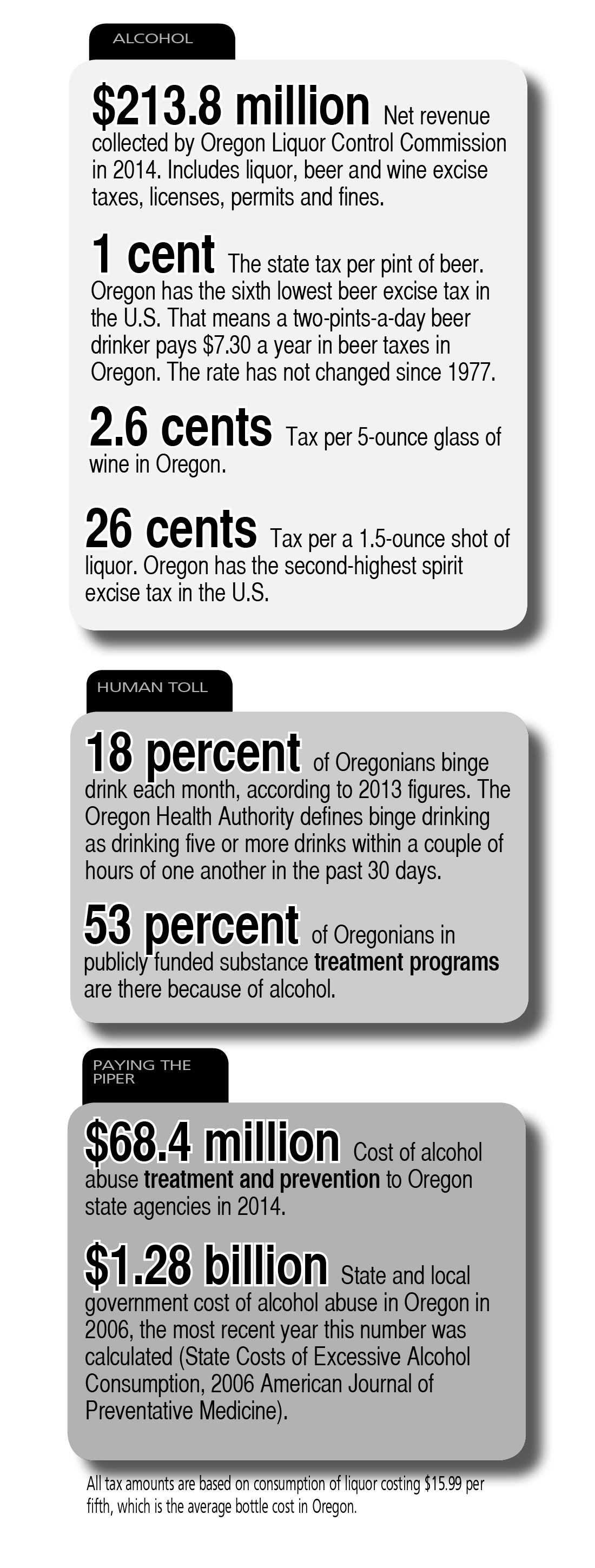As Oregon adds marijuana to its list of taxable sins, Street Roots examines the financial impact of the state’s excise taxes, also known as “sin taxes.” How much revenue do sin taxes generate for the state and what do the taxed sins ultimately cost residents?
While sin taxes are, in part, used to fund programs that offer treatment and prevention of alcohol abuse, problem gambling and tobacco use, much of the revenue goes toward programs that have nothing to do with these vices — programs that are paid for through the state’s general fund. That means tobacco smokers, gamblers and drinkers — and soon pot smokers — are paying additional taxes for programs, such as education, that benefit all Oregonians.
Sin taxes make up about 4 percent of the state’s annual budget, landing Oregon among the 10 states that draw the most funding per capita from sin. Proponents argue they are a necessary evil. Some argue the additional cost discourages people from buying harmful products, such as cigarettes and alcohol. But opponents say governments shouldn’t profit from products they are charged with regulating.
According to national Campaign for Tobacco-Free Kids, tobacco taxes are a “win-win-win” because they help states in fiscal crisis, reduce smoking rates and earn public support. It says for every 10 percent increase in cigarette prices, youth smoking is reduced by 7 percent.
Critics argue the taxes hit poor Oregonians disproportionately and do not act as a deterrent to those who are addicted. They will simply find the money to pay for price increases by cutting down on other areas of spending.
According to the Oregon Health Authority, 1 out of every 3 Oregonians who makes less than $15,000 a year smokes cigarettes. This is in comparison to 1 in 10 Oregonians who make more than $50,000 per year who smoke. Additionally, the average household income of a problem gambler is about $20,000 a year less than the state’s median household income.
“If you listen to legislators in hearings down in Salem, which I’ve done a number of times, you hear them say ‘smoking is bad for you, marijuana is bad for you, you shouldn’t gamble,’ but then they tax these things,” says Steve Buckstein, founder of the Portland-based nonpartisan public policy research group, Cascade Policy Institute.
“But then they become addicted themselves to the revenue that those taxes carry, so they have created a moral hazard for themselves. On the one hand, they don’t want you to do those things, but on the other hand, they hope you do them so they can get the tax revenue to spend on whatever their projects are,” says Buckstein.
“It’s the majority picking on the minority. The same thing will happen, I predict, with marijuana. Legislators say they don’t want people to smoke it, but they’re hungry for the revenue.”
Oregon Sin Tax Basics
Liquor Tax: OLCC doesn’t place a “tax” on distilled spirits, but it collects on the net profits from sales. Distilled Spirits Council of the United States came up with $22.73 per gallon as a way to compare OLCC to other states, however this is not entirely accurate for all spirits. About 42 percent of the bottle price is net profit for OLCC, but this varies. That number is for the OLCC’s average bottle price of $15.95.
Beer tax: 8 cents per gallon, unchanged for 38 years.
Wine tax: 67 cents per gallon for wines up to 14 percent ABV. For wines with an ABV higher than 14 percent, it’s 77 cents per gallon
Marijuana Tax under Measure 91: $35 per ounce of flowers, $10 per ounce of leaves, $5 per immature living plant - most cities would like to add an additional 10 percent tax
Cigarette Tax: $1.31 per pack as of January.



